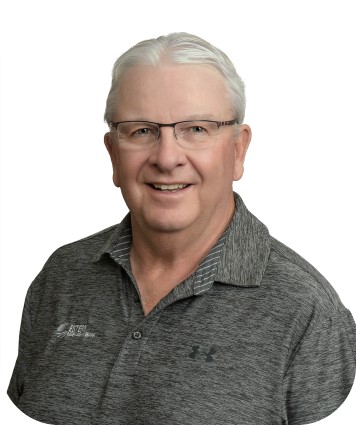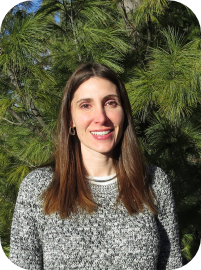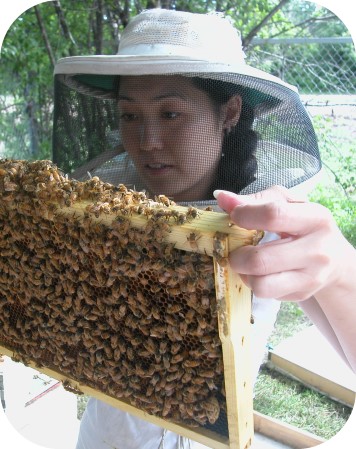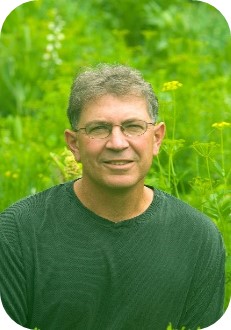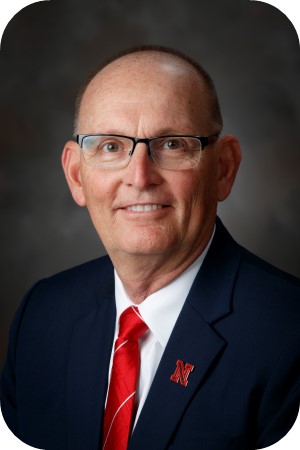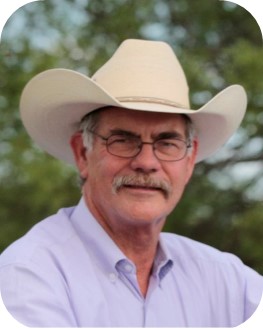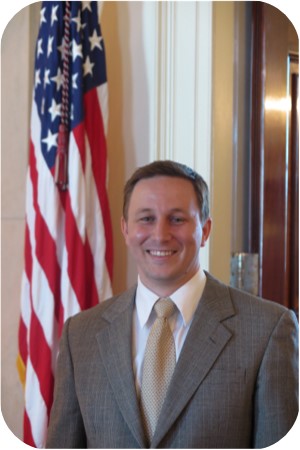2021 Proceedings: Nebraska Grazing Conference
Sponsors
The Nebraska Grazing Conference thanks the many exhibitors and sponsors who support the conference. To see a list of the 2021 sponsors, CLICK HERE.
August 9, Monday | Pre-conference Tour
Location: Larsen Land & Livestock, Lexington, NE
Directions: Follow Plum Creek Highway south from Lexington, turn west on Road 751, and drive one mile. The property is at the corner (34-9-22W).
1:00 PM |
Conservation Practices & Grazing Managementby Chris Larsen, Owner, Larsen Land & Livestock, Lexington, NE ... jcl68850@outlook.com Chris Larsen was raised on and has worked on the family farm southwest of Lexington, NE for almost 68 years. Chris and his wife have one daughter. Chris’s grandfather, James A. Larsen, purchased the farm in the late-1930’s or early-1940’s. Chris’s dad can remember going out to fix fence out at the farm and watch the tri-county canal being dug. Chris farms row crops and does not own cattle. Chris’ passion is conserving the rangeland. He has worked with NRCS to help create a grazing plan to assist his operator in his cattle rotation to benefit the range site. Chris has installed a lot of conservation practices throughout the years with NRCS. On this rangeland site he has installed a water system, cross fence, and implemented brush management and prescribed burning for cedar tree control to improve his grass composition. Multiple methods were used for brush management, e.g., a bobcat, chainsaw, and the Barns brothers to do the steep draw work with chainsaws. Chris installed a new well, livestock pipeline, tanks, and cross fence. For the prescribed burn, Chris worked with Mark Alberts and the Central Platte Rangeland Alliance Burn Group to create and implement a prescribed burn plan. After the burn, Chris had his pasture aerial sprayed to help control the thistle and the mullein. In the process of aerial application, he learned the impact on native forbs, which now has him spot spraying to control noxious weeds. To see a map of the tour site, CLICK HERE. |
|
1:45 PM
|
Prescribed Burningby Mark Alberts, Burn Boss, Central Platte Rangeland Alliance, Gothenburg, NE ... markalberts@rocketmail.com Mark Alberts was born and raised in Gothenburg, NE. He has been in agriculture his whole life as a row crop producer and as a rangeland manager. Mark is married and has two children and eight grandchildren. Mark and Deb inherited rangeland from Mark’s grandfather, and they really enjoy managing the rangeland, which could be anything from fixing fence to cutting trees. Mark is truly passionate about agriculture and conserving resources for future generations. Central Platte Rangeland Alliance Burn Group was organized in 2010 by Don Lydic and Mark took over as president of Central Platte Rangeland Alliance Burn Group in 2012. The group works with several different agencies such as the Natural Resources District, Pheasants Forever and Natural Resources Conservation Service. Members pay a $25 annual membership fee, participate in two to three meetings per year, as well as prescribed burns in the area. During the June meeting the members tour successful burn units and attend a BBQ hosted by Mark to encourage communication and comradery within the group. Per organizational policy, an individual interested in conducting a burn in 2022 must help with at least half of all burns conducted in 2021. The group’s territory covers the Brady/Moorefield Road to Lexington. Ten burns have been conducted in 2021. Mark is very passionate and proud of the group’s past accomplishments and what he knows they will accomplish. |
|
2:30 PM
|
Grazing Managementby Craig Howard, Producer, Lexington, NE ... craighoward@cozadtel.net Craig Howard is a native of Lexington, NE. He attended the Nebraska College of Technical Agriculture (NCTA) in Curtis, NE where he majored in production agriculture. Upon graduation, he returned home to farm and later took over the management of a custom cattle feeding operation. Craig eventually changed careers and began working for Nebraska Public Power District (NPPD) where he has been for 26 years. He and his wife have six children and three grandchildren. Over the last 15 to 20 years, Craig has operated his family farm, which consists of row crop and hay/feed ground. Craig rents Chris Larsen’s pasture where he has a 70-head Simental cattle operation. The Larsen pasture is split into three paddocks. He runs the herd for a month and half in each of the north paddocks and two months in the south paddock as it is 50% larger than the north paddocks. Craig has seen a large improvement in the forage quality and quantity since the improvements were completed. He feels the grass has grown back better after the prescribed burn with more warm-season grasses returning. Managing the rotation and the system improvements are working well. |
|
3:15 PM
|
|
Plant Identificationby Jerry Volesky, Range & Forage Scialist, West Central Research & Extension Center, North Platte, NE ... jerry.volesky@unl.edu Jerry Volesky is a professor and range and forage specialist with the University of Nebraska-Lincoln West Central Research and Extension Center located in North Platte. He has been with UNL for 25 years. His responsibilities include conducting grazing management and forage systems research on native range and seeded pasturelands in central and western Nebraska Extension responsibilities include development and delivery of range and forage management programming for both adult and youth clientele in Nebraska. |
4:00 PM
|
Conclusion of Pre-conference Tour
|
August 10, Tuesday | Conference Opens
7:45 AM |
Registration |
|
8:35 AM |
|
Welcome & Opening Remarksby Daren Redfearn, Chair, Nebraska Grazing Conference Steering Committee, Professor, Department of Agronomy & Horticulture, Program Leader, Water & Integrated Cropping Systems Hub, University of Nebraska-Lincoln, Lincoln, NE ... dredfearn2@unl.edu Daren Redfearn is a professor of Agronomy and Nebraska Extension Forage and Crop Residue Specialist. Dr. Redfearn is a member of a multidisciplinary team focused on enhancing and developing forage-based beef production systems. His research and extension program emphasizes annual and perennial grass management, converting cropland to forage production, and grazing of forages that can be integrated into economical and resilient crop-forage-bioenergy agricultural production systems. He also serves as Extension Program Leader for the Water and Integrated Cropping Systems (WICS) Team co-leading a group of technical area experts in water and cropping systems to build collaborative relationships and foster engagement to address complex issues in agricultural production and natural resource systems. He is a member of the American Society of Agronomy and Crop Science Society of America and has served as co-editor for Volume II of Forages: The Science of Grassland Agriculture and as editor and co-editor for Crop, Forage, and Turfgrass Management. He received a doctorate and master’s degree in Agronomy from the University of Nebraska-Lincoln with a bachelor’s degree from Texas Tech University in Animal Science. |
8:45 AM
|
|
Center for Grassland Studies Updatesby Walt Schacht, Interim Director, Center for Grassland Studies, University of Nebraska-Lincoln, Lincoln, NE ... wschacht1@unl.edu Walter H. Schacht is the Interim Director of the Center for Grassland Studies at the University of Nebraska-Lincoln. Schacht’s research has emphasized ecosystem responses to grazing and associated management practices in the Nebraska Sandhills and cool-season grass pasture in the eastern Great Plains. He has been a principal investigator in studies quantifying range vegetation response to season and intensity of grazing at UNL's Gudmundsen Sandhills Laboratory and in grazing systems comparison studies at UNL's Barta Brothers Ranch. In eastern Nebraska and south-central Iowa, his studies have focused on nutrient cycling and improvement of pasture quality with the use of fire, grazing strategies, legumes, and herbicides. His former students are farm and ranch managers and in key positions with university research and extension, NRCS, FSA, US Forest Service, NRDs, Board of Educational Lands and Funds, Nebraska Department of Transportation, Nebraska Game and Parks Commission, Agricultural Research Service, and numerous conservation groups. Overall, his career has focused on undergraduate and graduate education and evaluating and developing management strategies that ensure the ecological and economic sustainability of grazing lands for multiple uses, including livestock grazing. To see Walt's NGC presentation material, CLICK HERE. |
August 10, Tuesday | Conservation Session
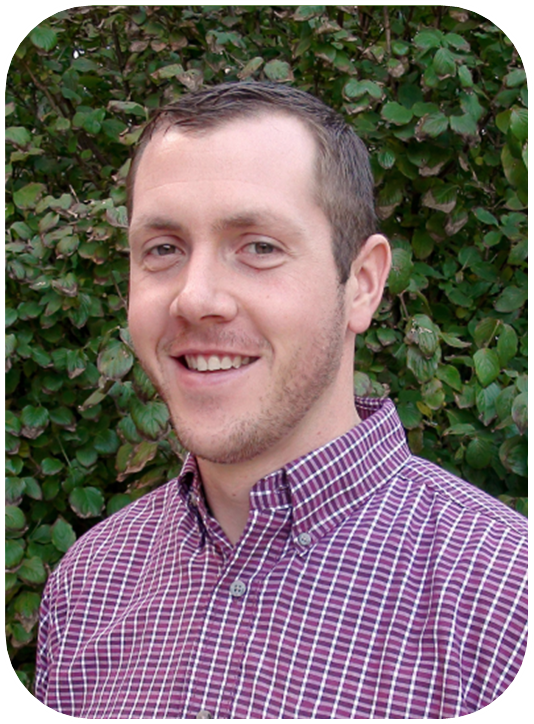 |
Session ModeratorBen Beckman, Extension Educator, Nebraska Extension, Hartington, NE ... ben.beckman@unl.edu Ben is a beef systems educator with Nebraska Extension. He grew up on a family farm in northeast Nebraska and has studied and worked with grazing and forage issues in Nebraska for 14 years. Currently, Ben provides producer support and programs focused on forage production and grazing systems, pulling from past work on mob grazing systems and current research on alfalfa and summer annual crops for inspiration. Ben has a B.S. degree in grassland ecology and management and a Master of Science in agronomy focusing on range and for-age production, both from the University of Nebraska-Lincoln. |
|
9:00 AM
|
|
Storytelling in Nebraska's Grasslandsby Ethan Freese, Photographer & Videographer, Platte Basin Timelapse, School of Natural Resources, University of Nebraska-Lincoln, Lincoln, NE ... efreese2@unl.edu Ethan is a photographer and videographer at the Platte Basin Timelapse project. He graduated from the University of Nebraska-Lincoln in 2018 with degrees in Fisheries and Wildlife and Grassland Ecology and Management, and in 2020 he completed a Master of Applied Science also at the University of Nebraska-Lincoln. Ethan grew up exploring the prairies and waterways of eastern Nebraska and hopes to use photography to teach others about these undervalued ecosystems. To listen to Ethan preview his NGC presentation, CLICK HERE. To see Ethan's NGC conference presentation material, CLICK HERE. |
9:40 AM
|
|
History of Conservation on a Private Ranchby Mike Kelly, Producer, North Platte, NE ... mkelly@csbcurtis.com Michael Kelly is a third-generation cattle rancher with a cow-calf yearling business located on the Southern end of the Nebraska Sandhills near Sutherland, NE. The Kelly family has a long history of ranching back to the original homestead ranch in Keith County in 1885. The Kelly Ranch is a past National Cattlemen’s Beef Association National Environmental Stewardship Award Winner and received a Regional Administrators Award for Environmental Excellence from the Environmental Protection Agency, Region 7. In 2010 the ranch received the Nebraska Section Society for Range Management Rangeman’s Award because of their willingness to share their knowledge with others through formal and informal ranch tours and presentations. In 2017, Mike was recognized by the Nebraska Bankers Association with their NBA Agribusiness Recognition Award for outstanding service to Agriculture. The Kelly Family also has an interest in Western Nebraska Bank which is predominantly an agriculture bank serving several counties in Western Nebraska. |
10:10 AM |
Break and/or Grassland Systems Degree Program Breakout |
August 10, Tuesday | Value of Pollinators in Grasslands Habitat Session
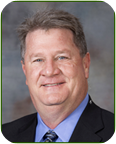 |
Session ModeratorDaren Redfearn, Chair, Nebraska Grazing Conference Steering Committee, Professor, Department of Agronomy & Horticulture, Program Leader, Water & Integrated Cropping Systems Hub, University of Nebraska-Lincoln, Lincoln, NE ... dredfearn2@unl.edu See Daren's earlier biography. |
|
10:40 AM |
2020 Leopold Conservation Awardeesby Ed & Leta Olson, Craig, NE Ed and Leta Olson are leaders in implementing conservation practices. Their work includes creating filter strips, improving water quality, creating wildlife habitat, and improving soil health on their farm in eastern Nebraska. The use of cover crops, a no-till practice, and terracing help the Olson’s manage their land. Planting thousands of trees and shrubs earned them the Legacy Award from Pheasants Forever, Quail Forever and the U.S. Department of Agriculture in 2015. In 2017 the Olsons were among the first landowners to participate in Nebraska’s Corners for Wildlife program that established one to three-acre plots of pollinator habitat at rural intersections. Ed co-founded the Burt County Pheasants Forever chapter and is owner of Olson Pearson Auctions & Realty. Ed is also involved in the education of youth as an instructor for the Nebraska Game & Parks Hunter Education Program, and as a volunteer with Pheasant Forever’s Youth Mentor Hunt. He has also been a 4-H wildlife habitat team leader. |
|
11:00 AM |
|
Simple Steps and Benefits of Including Pollinator Habitat on Your Landby Melissa Panella, Wildlife Diversity Program Manager, Nebraska Game & Parks Commission, Lincoln, NE ... melissa.panella@nebaska.gov Melissa Panella has worked as a Wildlife Biologist and Ecological Educator for over 20 years. Her work currently focuses on conserving at-risk species and their habitats. She is co-coordinator of the State Wildlife Action Plan and oversees the Nebraska Natural Legacy Project. She is based at the Nebraska Game and Parks Headquarters but works statewide. To listen to Melissa preview her NGC presentation, CLICK HERE. To see Melissa's NGC presentation material, CLICK HERE. |
11:30 AM |
|
Roles of Pollinators and Decline Issuesby Judy Wu-Smart, Assistant Professor, Entomology, University of Nebraska-Lincoln, Lincoln, NE ... jwu-smart@unl.edu Judy Wu-Smart received her Bachelor of Science in Zoology at Humboldt State University, then completed her graduate programs in Entomology, receiving a master’s from Washington University and doctorate from University of Minnesota. Her research has focused on understanding the sub-lethal and behavioral impacts of pesticides in managed honeybees and wild bumble bees. She’s now an Assistant Professor and Extension Specialist and has been the director of the UNL Bee Lab since the Fall of 2015. The UNL Bee Lab program focuses on understanding the underlying stressors in bee health, including bee pests and diseases, pesticide exposure, degraded habitats, and malnutrition, and developing sustainable solutions through better management of bees and landscapes. The UNL Bee Lab also strives to engage with the community and integrate research and extension efforts with science policy to inform the regulatory decision-making processes. This includes identifying risk mitigation opportunities and best management practices that will better protect beneficial pollinators in agricultural and urban landscapes. |
12:00 PM |
Lunch |
August 10, Tuesday | Managing Wet Meadows Session
 |
Session Moderatorwith Jerry Volesky, Range & Forage Specialist, West Central Research & Extension Center, North Platte, NE ... jerry.volesky@unl.edu See Jerry's earlier biography. |
|
1:00 PM |
|
Subirrigated Meadow Managementby Walt Schacht, Interim Director, Center for Grassland Studies, University of Nebraska-Lincoln, Lincoln, NE ... wschacht1@unl.edu See Walt's earlier biography. To listen to Walt preview his NGC presentation, CLICK HERE. To see Walt's NGC presentation material, CLICK HERE. |
1:30 PM |
|
Sandhills Wet Meadows: A Botanist's Perspectiveby Gerry Steinauer, Botanist, Nebraska Game & Parks, Aurora, NE … gerry.steinauer@nebraska.gov Gerry grew up in the small town of Millard, Nebraska before it was overrun by Omaha. He received an B.S. in Biology from Wayne State College and a M.S. in Ecology from the University of South Dakota. After graduation, he worked five years for The Nature Conservancy in various conservation positions throughout the Great Plains. In 1989, he began my present job as the plant ecologist and botanist for the Nebraska Game and Parks Commission. For over a decade, his wife Grace and he have managed the native and planted grasslands on her family’s southeastern South Dakota farm using a combination of intense spring and fall grazing, fall haying, spring prescribed fire and rest. Their management goals are wildflowers, wildlife, and income. To listen to Gerry preview his NGC presentation, CLICK HERE. To see Gerry's NGC presentation material, CLICK HERE. |
2:00 PM |
|
Managing Rainwater Basin Wetlandsby Jeff Drahota, Biologist, U.S. Fish & Wildlife Service, Rainwater Basin Wetland Management District, Funk, NE ... jeff_drahota@fws.gov and Brad Krohn, Project Leader, U.S. Fish & Wildlife Service, Rainwater Basin Wetland Management District, Funk, NE … brad_krohn@fws.gov Jeff has been working on wetland management and restoration strategies for over 30 years now. Brad is responsible for overseeing the management of ~26,000 A of native mid-grass prairie habitat that contains ~12,400 A of wetland habitat in the Rainwater Basin (RWB). Their experience stems from years of attempting to apply appropriate management disturbances at a frequency and the intensity that mimics historic disturbances that help maintain grasslands and prairie wetlands. They annually work with 20-40 cattle operations that can provide the prescribed grazing treatments on Waterfowl Production Areas (WPAs). Their combined experience in research and management have taught us some valuable lesson in range management, community relationships, and livestock management. To listen to Jeff preview his NGC presentation, CLICK HERE. |
2:30 PM |
Break |
|
3:00 PM |
|
Grazing Management to Reduce Reed Canarygrass and Other Cool-season Grasses in Wet Meadowby John Guretzky, Associate Professor, Agronomy & Horticulture, University of Nebraska-Lincoln, Lincoln, NE … jguretzky2@unl.edu John Guretzky is a Grassland Systems Ecologist in the Department of Agronomy and Horticulture at the University of Nebraska-Lincoln. He has a 60% research and 40% teaching appointment. His research interests include grazing and inter-seeding effects on productivity and nutritive value in range and pasturelands. He teaches courses in Forage Crop and Pasture Management, Range Management and Improvement, Forage Evaluation, and Forage Quality. He received a Ph.D. in Agronomy from Iowa State University in 2002 and a B.S. in Natural Resources from the University of Nebraska-Lincoln in 1996. Active professional memberships include the American Society of Agronomy and Crop Science Society of America. To listen to John preview his NGC presentation, CLICK HERE. |
3:45 PM |
|
How Grazing Wet Meadows Benefits the Entire Ranchby Tim Goodnight, Manager, McMurtrey Spikebox Ranches/Turner Ranches, Nenzel, NE … tim.goodnight@retranches.com Tim Goodnight is the ranch manager at the Turner Ranches McMurtrey and Spikebox properties, located in the heart of the Nebraska Sandhills. The McMurtrey and Spikebox ranches consist of 140,000 acres, which is home to 2,800 cows and 1500 yearlings. Tim has developed the ranch's wet meadow grazing to improve soil health on the meadows and provide longer rest periods for their rangeland. This strategy has reduced hay expenses, increased forage production, soil health, and carrying capacity. |
4:30 PM |
Discussion |
|
4:45 PM |
Social Hour with Hors d/oeuvres |
August 10, Tuesday | Zoom Webinar Panel: Grassland Carbon Credits
7:00 PM |
|
Carbon Sequestration: Government Policy vs Reality: Is There Common Ground?by Greg Ibach, USDA Under Secretary in Residence, University of Nebraska–Lincoln, Office of Vice President/Vice Chancellor, Lincoln, NE … gibach2@unl.edu Greg Ibach is the Under Secretary in Residence at the University of Nebraska-Lincoln’s (UNL) Institute of Agriculture and Natural Resources. In his new role with IANR, Mr. Ibach will help advance the institute in areas including agricultural biotechnology policy, agricultural-biosecurity, workforce training and the partnership between the National Institute of Antimicrobial Resistance Research Education (NIAMRRE) and APHIS, among other areas. He will also engage UNL learners interested in public service, the importance of public and private partnerships, and science-informed policy. Mr. Ibach spent the past three years as USDA’s Under Secretary for Marketing and Regulatory Programs. In his role as the Under Secretary, Mr. Ibach carried out the MRP mission area’s broad task of facilitating domestic and international marketing of U.S. agricultural products and ensuring the health and care of animals and plants. Prior to his USDA appointment, Mr. Ibach served as Nebraska’s Director of Agriculture for over 12 years, making him the longest-serving director in the organization’s history. He has been inducted into the Nebraska Hall of Agricultural Achievement and is a former President of the National Association of State Departments of Agriculture. Mr. Ibach was a 2018 Block and Bridle Honoree and the recipient of the Department of Agricultural Economics 2020 Outstanding Alumni Award. To listen to Greg preview his NGC presentation, CLICK HERE. |
7:45 PM |
|
Carbon Markets and Carbon Banks: What Do They Mean for Nebraska Agriculture?by Dave Aiken, Professor, Agricultural Economics, University of Nebraska-Lincoln, Lincoln, NE … daiken@unl.edu A native Nebraskan, Dave Aiken graduated from Hastings College and received his law degree from George Washington University, Washington DC. After his graduation from law school, Dave joined the University of Nebraska Department of Agricultural Economics staff in 1975. Dave has published over 100 technical and popular publications dealing with water rights, environmental law, and agricultural law. He teaches online undergraduate courses in agricultural law and environ-mental & natural resources law. To listen to Dave preview his NGC presentation, CLICK HERE. To see Dave's conference presentation material, CLICK HERE. Also available is an ag carbon contract checklist, CLICK HERE. |
8:30 PM |
Carbon Markets: The Untold Storyby Roric Paulman, Producer, Sutherland, NE … rpaulman@gpcom.net As a third generation farming family, the Paulman’s value the tradition of farming and conservation. Roric and Deb have four children: Joshua (Nadja), Winsome (Adrian, Bowen, Piper, Brant), Garrett (Kathleen) and Zachary. Started from scratch in 1985 building to a peak of 10k acres in the 90’s, Paulman Farms currently consists of 6,500 acres irrigated and rain fed land. Located in Southwest Nebraska, Lincoln, Keith, Perkins counties and operating in three groundwater Natural Resource Districts – Twin Platte, Upper & Middle Republican – and in two major river basins: Platte and Republican. The Paulman’s goal is for the land to remain just as productive, or per-haps more productive than when they started. |
|
9:00 PM |
Adjourn |
August 11, Wednesday | Conference (continued)
7:30 AM |
|
Registration |
7:50 AM |
Opening Commentsby Daren Redfearn, Chair, Nebraska Grazing Conference Steering Committee, Professor, Department of Agronomy & Horticulture and Program Leader, Water & Integrated Cropping Systems Hub, University of Nebraska-Lincoln, Lincoln, NE … dredfearn2@unl.edu See Daren's earlier biography. |
August 11, Wednesday | Grazing Systems Session
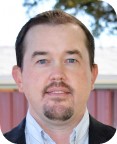 |
Session ModeratorMitchell Stephenson, Extension Range & Forage Management Specialist, Panhandle Research & Extension Center, Scottsbluff, NE … mstephenson@unl.edu Mitchell B. Stephenson is an Associate Professor and Range Management Specialist with the University of Nebraska-Lincoln at Panhandle Research and Extension Center located in Scottsbluff, NE. Dr. Stephenson’s research and extension programs are focused on better understanding the link between grazing management, plant communities, and soil health. Current research is focused on conducting on-ranch research with a collaborative of producers to identify variability in plant communities at different spatial scales in the Nebraska Sandhills. Other research is focused on better understanding cattle grazing behavior to improve opportunities for targeted grazing with specific management goals. One current project is evaluating the effect of cattle grazing on cheat-grass (Bromus tectorum) invasion in the western Great Plains. Lastly, Dr. Stephenson is involved in long-term research evaluating plant functional group biomass production based on annually fluctuating weather patterns. |
|
8:00 AM |
|
Management: The Limiting Factor in Grazing Managementby John Walker, Professor/Range Specialist, Texas A&M AgriLife Research & Extension Center, San Angelo, TX … jwalker@ag.tamu.edu John Walker has conducted research at the Texas A&M University AgriLife Research and Extension Center in San Angelo, Texas since 1997. Prior, to that he was a range scientist at the U.S. Sheep Experiment Station in Dubois, ID for 10-years. His research interests are in diet selection and using or manipulating diet preferences to improve the ecological health of rangelands. His research and management involve multispecies grazing, targeted grazing, and the development of the ACE goat (Aggie Cedar Eater) a line of goats selectively bred to increase preference for juniper. He is currently a coinvestigator on the Prairie Project, which is a collaborative project with the University of Nebraska and Oklahoma State University on the use of pyric herbivory and multispecies grazing to sustainable reduce woody plant encroachment. Dr. Walker received his B.S. in Wildlife Science from Texas A&M University. His M.S. from Colorado State University where he conducted research in eastern Colorado on the production of forage fed beef from integrated crop and rangeland grazing systems. In the 1980’s he managed and conducted research on short duration grazing in north Texas for his Ph.D. from Texas A&M. To listen to John preview his NGC presentation, CLICK HERE. To see John's NGC presentation material, CLICK HERE. |
8:45 AM |
|
Changes in Grazing Management from Continued Educational Programmingby Sean Kelly, Range Field Specialist, Mid-Missouri River Prescribed Burn Association Liaison, Winner, SD … sean.kelly@sdstate.edu Sean is an experienced cattle producer and range science professional developing and delivering research-based programming to livestock producers and landowners. His focus is on strategic and scenario ranch planning to pro-mote profitability and sustainability while enhancing and improving the natural resources of a ranch operation. Sean serves as liaison officer for the Mid-Missouri River Prescribed Burn Association, coordinator for the South Dakota Grazing School Follow-up Consultation Program, and as a registered nurse and emergency medical technician to the Gregory Volunteer Ambulance Service and Avera Gregory Hospital. To listen to Sean preview his NGC presentation, CLICK HERE. |
9:15 AM |
|
Grazing Education: The South Dakota Grassland Coalition Modelby Dan Rasmussen, Educator Range Consultant/Rancher, Belvidere, SD … the33ranch@gmail.com Dan Rasmussen grew up and pursued a ranching career on his family ranch in Mellette County, South Dakota. He was a board member for the South Dakota Grassland Coalition for 18 years. In 2018 he left the board so he could manage a grant for the coalition, which helps ranchers manage their grazing land. To listen to Dan preview his NGC presentation, CLICK HERE. To see Dan's NGC presentation material, CLICK HERE. |
9:45 AM |
Break |
August 11, Wednesday | Risk Management Session
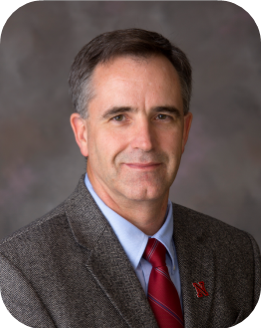 |
Session ModeratorJay Parsons, Professor, Agricultural Economics, University of Nebraska-Lincoln, Lincoln, NE ... jparsons4@unl.edu Jay Parsons is an agricultural economist specializing in farm and ranch management decision making, risk management, and production systems analysis. He teaches Advanced Farm Management and Linear Programming and is a part of an interdisciplinary research and extension team evaluating crop and livestock integrated production systems for Nebraska. Dr. Parsons has over 20 years of experience helping farmers and ranchers understand risk and emerging risk management tools. |
|
10:15 AM |
|
Livestock Risk Management 101by Jim Jenkins, Jenkins Management LLC, Callaway, NE … jimjenkins2000@gmail.com Jim Jenkins has over 35 years of experience in agriculture and food related industries. Jim is the operating partner for his family’s diversified farming and ranching operation near Callaway, Nebraska. In 1996 Jim founded Wild West, Inc. the company that built and operated Whiskey Creek steakhouses in Nebraska and Missouri. Jim is currently a partner in the Skeeter Barnes restaurant in Kearney. Jim has a long-time interest in land stewardship, having served as a past member of the Nebraska Grazing Lands Coalition. Jim is a proponent of the benefits of rotational grazing and recently added sheep to his ranch’s cattle operation to further improve the quality of his pastures. Over the past ten years Jim has given over 50 presentations on agriculture and business topics. Jim has been an outspoken advocate on the benefits of beef and ruminant production to the environment and its important contribution to meeting growing world nutritional needs. Jim is a past chairman of the Nebraska Ethanol Board; is a past board member of the Nebraska Grazing Lands Coalition; former executive director of the Nebraska Corn-Fed Beef program; served for nine years on the Custer County Planning Commission; and is a past president of the Nebraska Restaurant Association. Jim is a past member of the President’s Advisory Council at the University of Nebraska. Jim currently serves as a board member of Agricultural Builders of Nebraska. In 2020 Jim joined the board of the Platte Institute, a Nebraska based economic and policy think tank. |
10:50 AM |
|
Managing Pasture Production Riskby Jay Parsons, Professor, Agricultural Economics, University of Nebraska-Lincoln, Lincoln NE … jparsons4@unl.edu See previous biography. To listen to Jay preview his NGC presentation, CLICK HERE. To see Jay's NGC presentation material, CLICK HERE. |
11:25 AM |
|
Cattle Markets Are on Fire: What Price Risk Should We Be Managing For?by Elliott Dennis, Assistant Professor, Agricultural Economics, University of Nebraska-Lincoln, Lincoln, NE … elliott.dennis@unl.edu Elliott Dennis is an Assistant Professor of Livestock Marketing and Risk Management in the Department of Agricultural Economics at the University of Nebraska-Lincoln. He has previously worked in roles involving entrepreneurs and venture capitalists. His current academic research centers on livestock marketing strategies, risk management evaluation, and quantifying animal health production practices. Before beginning his Ph.D., Dr. Dennis obtained an MS in Applied Economics from Utah State University and MBA in Agribusiness from the Royal Agricultural University in the UK. Dr. Dennis now lives in Lincoln, Nebraska with his wife and two daughters. To listen to Elliott preview his NGC presentation, CLICK HERE. To see Elliott's NGC presentation material, CLICK HERE. |
12:00 PM |
Lunch |
|
12:45 PM |
|
Conference Overviewby Tim Kalkowski, Regional President/Senior Loan Officer, First State Bank of Nebraska, Hickman, NE … tkalkowski@1fsb.bank Tim is a native of Bassett, NE, and a graduate of Rock County High School. He earned a finance degree from the University of Nebraska and is currently a Regional President/Senior Loan Officer for First State Bank Nebraska. Agriculture has always been a cornerstone and passion of Tim’s life. He helps manage the Kalkowski family ranches in Lynch, NE where conservation and stewardship are the foundation of the operation and were also the basis for receiving a Leopold conservation award in 2010. Tim has served on many boards and committees. He currently serves as President of the Nebraska Grazing Lands Coalition, is a member of the Lancaster County concentrated animal feeding operation working group, the USDA State Technical Committee for NRCS, and Pius X foundation board, and is also involved with his church community. Tim and his wife were co-chairs of the 2016 Cattle-men’s Ball. Tim has done speaking engagements on rotational grazing and generational transition. He is married and has two children and currently resides in Lincoln, NE. |
1:45 PM |
Conclusion |


